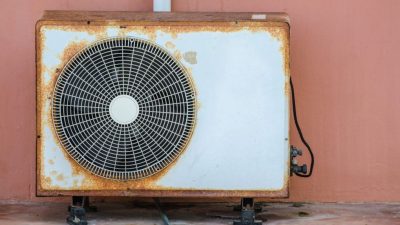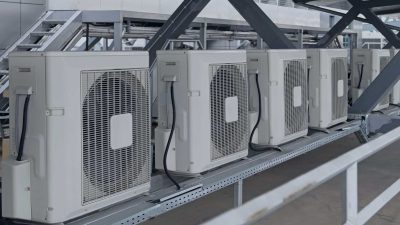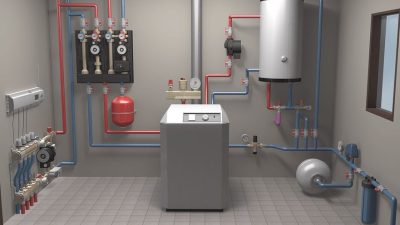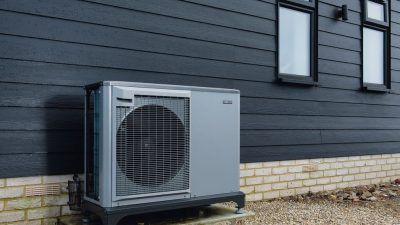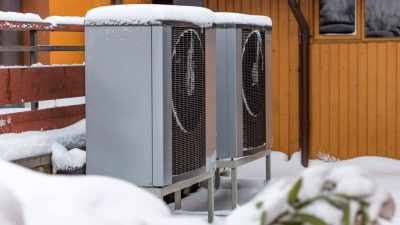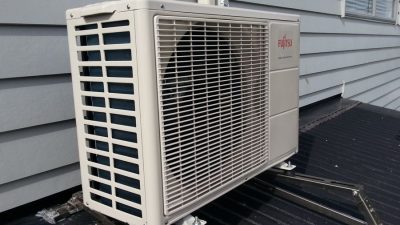Do heat pumps use gas or electricity? If you’re considering switching to a more sustainable energy source in your home, this is an important question to ask. Heat pumps are one of the most efficient and cost-effective ways to reduce your carbon footprint, but it can be difficult to know what type of fuel they require. In this article, we’ll take a closer look at how heat pumps work and whether they use gas or electricity.
Heat pumps primarily use electricity to operate. Heat pumps work by transferring heat from one location to another, and this process requires electricity to power the compressor, fan, and other components of the system.
Some heat pumps, known as hybrid or dual-fuel heat pumps, can also use natural gas or propane as a backup heating source. In these systems, a gas furnace is used to provide heating when outdoor temperatures drop too low for the heat pump to work efficiently. However, the primary heating source in a heat pump system is still electricity.
It’s worth noting that while heat pumps use electricity to operate, they are generally more energy-efficient than traditional heating and cooling systems, such as furnaces or air conditioners. This is because heat pumps move heat rather than generating it, so they can provide more heating or cooling for the same amount of energy input. As a result, heat pumps can be a cost-effective and environmentally-friendly option for heating and cooling your home.
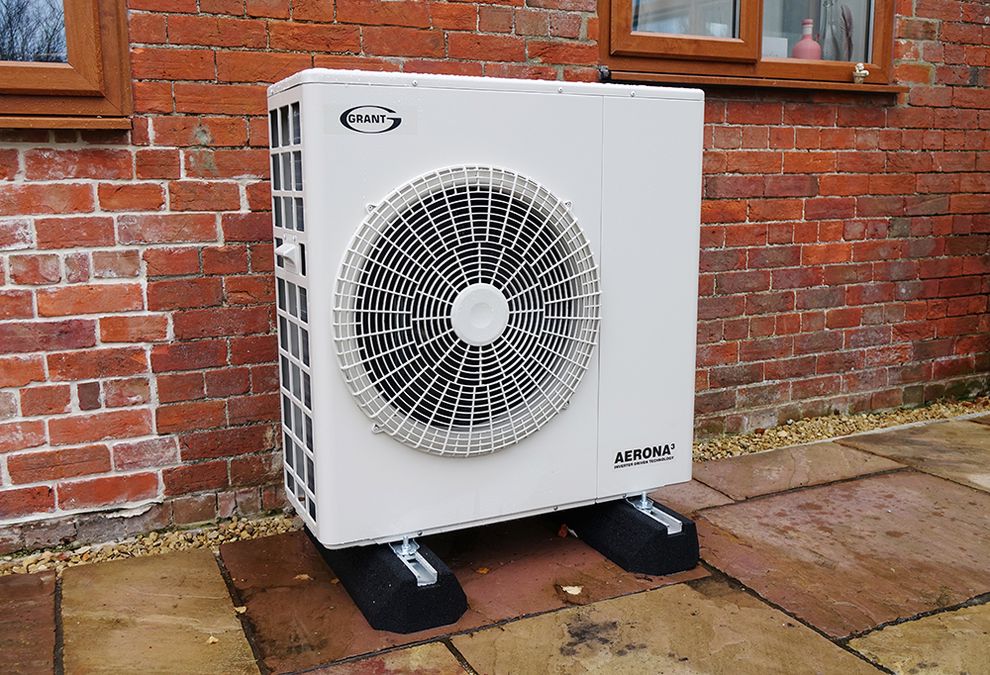
Types Of Heat Pumps
Heat pumps are systems that provide heating and cooling for your home. They come in a variety of types, each with their own unique advantages.
The three main types of heat pumps are geothermal, air-source and ground-source. Here’s a summary of each type:
- Geothermal: This type of system uses the stable temperature of the earth to provide heating and cooling. It can be highly efficient and cost-effective, although the installation cost is higher than other types.
- Air-source: This system uses outside air to provide heating and cooling. The initial cost is lower than geothermal, but it’s not as efficient or cost-effective in extreme climates.
- Ground-Source: Similar to a geothermal system, this type heats and cools using energy from the ground, but can also use water sources such as ponds or lakes as an energy source when available. It’s very efficient and reliable, but can be expensive to install since it requires digging trenches or wells for the pipes used in the system.
Another popular option is a split-system heat pump that combines both geothermal and air-source features for maximum efficiency no matter what climate you live in or how much money you want to spend on installation costs. Plus, its ductless design allows you to control which areas of your home receive heat or cooling, making it easier to stay comfortable while saving money on your utility bills at the same time!
These types of systems allow you to take control over your home environment without sacrificing comfort – something that everyone deserves!
Benefits Of Heat Pumps
Heat pumps are a great way to reduce energy consumption and running costs in your home. They provide an efficient and cost-effective alternative to traditional heating systems. Plus, they have plenty of other benefits that make them an attractive option for those looking for an environmentally friendly solution.
| Benefits | Heat Pump vs Traditional Heating | Environmental Impact |
|---|---|---|
| Energy Efficiency | High | Low Carbon Emissions |
| Lower Running Costs | Yes | Reduced Air Pollution |
| Longer Lifespan | Yes | Less Water Usage |
Heat pumps offer superior energy efficiency compared to traditional heating systems, resulting in lower running costs over time. Additionally, their long lifespan means you don’t have to worry about frequent replacement costs. Plus, their low carbon emissions and reduced air pollution help contribute to a healthier environment for us all. Lastly, heat pumps require significantly less water than other heating systems, making them an even better choice for the environment.
Heat pumps provide numerous advantages that make them a smart choice for homeowners who value energy efficiency and environmental impact – all while saving money on running costs.
How Heat Pumps Work
Heat pumps use electricity to provide heating and cooling to homes and businesses. They are a highly efficient, cost-effective way to regulate temperatures indoors. Here’s how heat pumps work:
- The heat pump absorbs heat from the outside air or ground using refrigerant in its evaporator coil.
- The refrigerant is then compressed, causing it to become a hot gas that is pushed into the condenser coil which transfers the heat energy inside the building.
- The remaining cool gas returns to the evaporator coil where it starts the process again.
- This cycle of transferring energy between indoors and outdoors continues until the desired temperature is reached.
Heat pumps are very efficient since they move rather than generate heat energy, making them up to three times more efficient than traditional heating systems that rely on burning fossil fuels for warmth. Heat pumps also have few moving parts, so they require less maintenance than other systems like furnaces and air conditioners. Additionally, their ability to transfer both warm and cold air means they can be used year-round for both heating and cooling needs without needing two separate systems. Ultimately, heat pumps are an excellent choice when looking for an energy-efficient way to stay comfortable all year round!
Cost Considerations
With the basics of how heat pumps work understood, it’s time to consider the costs. Heat pump cost is influenced by energy efficiency and installation costs. Heat pumps use electricity rather than gas, and can be more efficient than other heating systems. This means you can potentially save money in the long run when compared to other types of heating systems.
Financial savings can be realized through energy efficiency and lower operating costs. With a high-efficiency heat pump, your energy bills could be lower than with a standard heating system. Additionally, since heat pumps don’t require fuel or regular maintenance, their operating cost is usually much lower than traditional systems.
So if you’re looking for a cost-effective way to keep your home warm this winter, a heat pump could prove to be an excellent choice. It offers both energy efficiency and financial savings that could make it well worth the initial investment.
Conclusion
In conclusion, heat pumps are a great way to heat and cool your home while saving energy and money. They come in a variety of types, from air-source to geothermal, and can be tailored to fit your needs. Thanks to their efficient design, they use either electricity or gas depending on the type of system you choose. Heat pumps can be expensive upfront, but with proper maintenance and upkeep, they can save you money over time.
If you’re looking for an efficient way to keep your home comfortable all year round, then a heat pump could be the perfect solution for you. With so many options available, you should consider all the pros and cons before making a final decision. It’s important to do research so that you make an informed choice based on what best meets your needs.
Overall, heat pumps offer a great way to efficiently heat and cool your home without breaking the bank. With so many types available it’s easy to find one that works for you. You just have to understand how they work and weigh all the cost considerations before making any decisions.

